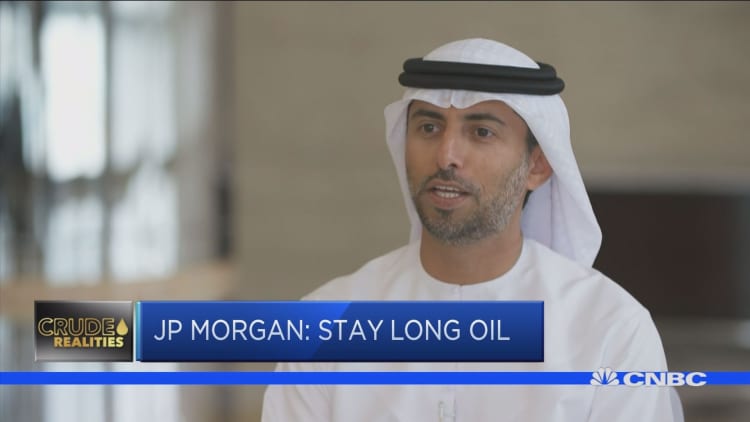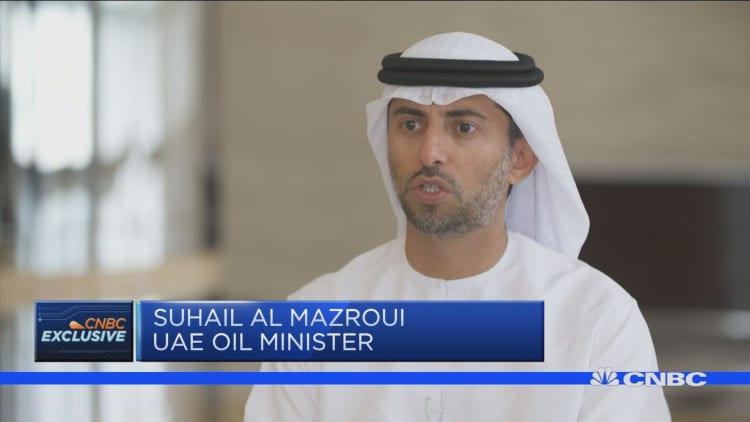
The Organization of the Petroleum Exporting Countries is not artificially inflating oil prices but has instead come together with the "noble goal" to rescuing the market, OPEC's current chairman said Monday.
"I don't think we ever said that we're targeting a price. We all remember what's happened two years ago — the market was over-flooded, and it wasn't OPEC who over-flooded the market. And no one intervened to do anything about it," Suhail Al Mazrouei, the United Arab Emirates' minister of energy and industry and OPEC president, told CNBC's Hadley Gamble.
The oil market experienced a sharp downturn after an increase in shale production in the U.S. caused prices to plunge below $30 per barrel in 2016.
"OPEC and non-OPEC (countries) came together, they sacrificed some of their production to try and fix the imbalance in the market. So the objective of OPEC was, I would say, a noble goal to rescue the market (from) a long over-supply," he said.
U.S. President Donald Trump on Twitter last week accused OPEC of being responsible for "artificially very high" oil prices.

Oil prices rose in March rose above $70 per barrel over fears that tensions in the Middle East could escalate. On Monday, oil prices were mixed during Asian trading hours: Brent crude oil futures trading 0.05 percent higher while the U.S. West Texas Intermediate crude futures were down by 0.03 percent.
Al Mazrouei said oil markets are in a "much, much better position" now thanks to the agreement among major oil producers, including OPEC countries and Russia, to limit production until the end of 2018.
But there's still work to be done to rebalance the oil market, the minister said, echoing the sentiment of Saudi Arabia's Energy Minister Khalid al-Falih and Russian Energy Minister Alexander Novak.
"The problem is if we keep the market over-supply or if we drown the market again ... We will have a way bigger problem down the road," Al Mazrouei said.
"It's a bigger picture than just looking at the price today and yesterday and [saying] that the price is high," he added.


